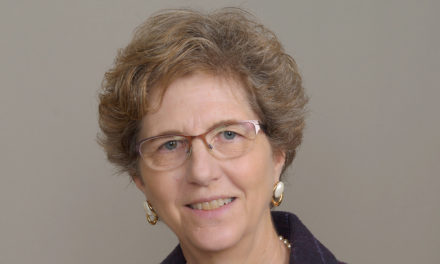
State leaders differ on whether Medicaid should target social determinants

State leaders disagree on whether Medicaid should cover services targeted at addressing the social determinants of health.
Gov. Tony Evers proposed a $45 million Medicaid community health benefit in his budget earlier this year, which would have gone to services like housing referrals, nutritional mentoring and transportation.
But Republicans didn’t move the proposal forward. At a Wisconsin Health News event in June, Speaker Robin Vos, R-Rochester, criticized Evers’ plan as “nothing more than what sounds like something somebody thought of somewhere with no detail whatsoever.”
Vos said they believe the Medicaid program has “serious flaws” and that any investments should go toward increasing provider rates. Funding the benefit might be difficult, he added.
“That money’s going to come from somewhere – it’s going to come from either not giving it to the university, or not giving raises to our public workers or not paying for some other service that we have,” he said. “We cannot afford the current system that we have.”
Britt Cudaback, a spokeswoman for Evers, said the proposal would have increased access to quality, affordable healthcare and address disparities.
“It’s possible the governor will include the Medicaid community health benefit or something similar in future budget proposals,” she said. “But right now the governor is focused on listening to the 70 percent of Wisconsinites who support expanding Medicaid and continuing to fight for Medicaid expansion through standalone legislation and every executive power he is afforded.”
Mike Bare, research and program coordinator at Community Advocates Public Policy Institute, said that other countries spend more on social services than they do on healthcare.
“I think we need to fundamentally rethink what we’re doing with these healthcare dollars, which is where the governor’s proposal was starting toward,” he said. “It’s absolutely the right way to go and to think otherwise is to perpetuate these health disparities that are leading to health inequities, and a lot of them driven by the social and economic determinants of health.”
Bare noted that health is often determined by things outside the healthcare system, like where people live and whether there’s easy access to healthy food and places to exercise.
“There’s a mountain of academic research that shows that when an individual’s housing quality is lower that there are direct impacts on health,” he said.
He noted that other states have received approval from the federal government so Medicaid can cover housing supports, including services that help people find and keep permanent housing.
Sara Steines Newstead, managing partner and co-founder of Milwaukee-based Genesis Health Consulting, which aims to improve children’s’ health, noted there’s a national push to address the social determinants of health by health systems, insurers and policymakers.
“It helps us to take a step back and think about how we collectively use our resources – our time, our money, our political capital – to try and create better health outcomes for people that are much more sustainable, much more cost effective and efficient overall,” she said.
She noted that healthcare organizations, like CVS Health and Aetna, are working to help members identify needs and connect them to local resources. Some, including UnitedHealthcare Community Plan of Wisconsin, have gone farther and are covering housing costs, she said.
UnitedHealthcare Community Plan of Wisconsin’s pilot targets around a dozen of their high-cost Medicaid patients. They’ve seen significant drops in emergency visits and inpatient stays through the program, CEO Ellen Sexton said in May.
“We are proud to serve Wisconsin as we continue our long-standing relationship with the state and collaborating on innovative solutions to provide residents with the access to care and services they need to live healthier lives,” the company said in a statement.
The health plan has also supported the state seeking federal approval to cover housing supports in Medicaid.
The Department of Health Services is looking at ways to use Medicaid to provide housing services to those who are homeless. The position to coordinate the waiver for the program was included in former Gov. Scott Walker’s final budget.
A state council on homelessness chaired by former Lt. Gov. Rebecca Kleefisch also recommended last year that Medicaid look at ways to address homelessness and health too.
This article first appeared in the Wisconsin Health News daily email newsletter. Sign up for your free trial here.





